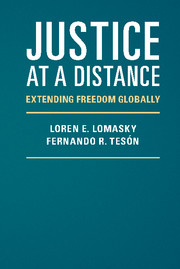5 - Emigration and the Brain-Drain Objection
Published online by Cambridge University Press: 05 November 2015
Summary
The brain-drain argument in its purest form maintains that when wealthy countries open their borders, the predictable effect is to induce the brightest and most productive citizens of poor countries to transfer their labor to a location where it will be more personally remunerative. Economies that already enjoy the benefits of ample human capital will be piling up yet more at the expense of those that have precious little. It is not nice to abscond with the widow's mite, but neither is it very neighborly to entice away her daughter, the computer programmer. In the interests of justice, the rich should refrain from acquiring precious personnel from the poor. The brain drain is, on this view, a curse for developing countries because it hurts those left behind. Because human capital is an important determinant of economic growth, the loss of skilled individuals, it is thought, undermines the economic performance of the country. Taking this empirical claim as true, critics deplore the brain drain as unfair and suggest that governments should try to stem it. But are these claims sound?
We argue that they are not. The brain drain is not as harmful as critics believe, and to the extent that it does harm some people, the harm is permissible for two reasons: first, the state does not own its citizens, and second, the right to leave is central to the pursuit of personal projects. Critics of the brain drain make problematic empirical and philosophical claims. The empirical assumption that the brain drain invariably hurts developing countries is controversial. Although a number of authorities endorse the conventional view, a contrarian literature suggests that the brain drain may help those left behind in various ways. We show that the philosophical claims associated with the objection are flawed as well. The claims we reject are as follows: because natural talents are morally arbitrary, those who have them are not entitled to the income those talents generate, and talented persons owe duties of reciprocity or gratitude.
We first examine the facts and summarize various proposals to stem the brain drain. The evidence shows that it is far from clear that the brain drain always, or most of the time, harms those left behind. In general, because the brain drain allocates resources efficiently, it is likely to benefit many people globally, especially the world's poor.
- Type
- Chapter
- Information
- Justice at a DistanceExtending Freedom Globally, pp. 121 - 148Publisher: Cambridge University PressPrint publication year: 2015



